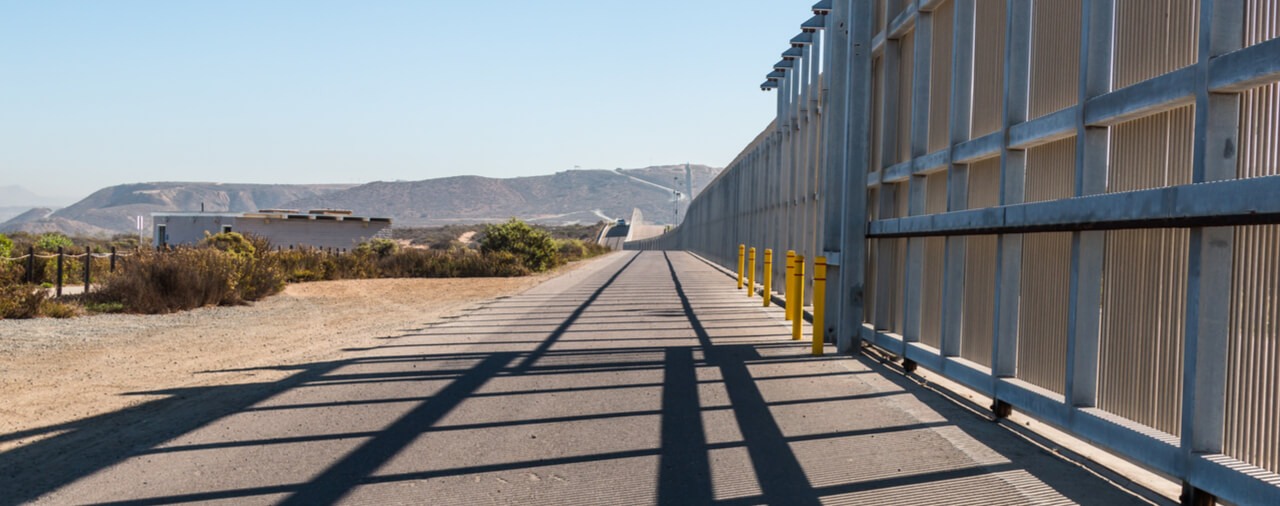On May 7, 2018, Attorney General Jeff Sessions delivered new remarks on immigration enforcement at the Southwest Border [PDF version].
In a separate post, we discussed Attorney General Sessions’ new “Zero Tolerance” policy [see article]. In the memorandum outlining the policy, Sessions instructed Department of Justice (DOJ) prosecutors to bring criminal charges in every illegal entry and illegal re-entry matter referred to it by the Department of Homeland Security (DHS). This policy follows a previously issued memorandum wherein the Attorney General directed prosecutors to pursue criminal charges against individuals who have committed immigration-related and human smuggling offenses (discussed in the article on the Zero Tolerance policy).
In his May 7 speech, Attorney General Sessions made an important announcement regarding a new DHS policy for making criminal referrals:
[T]he Department of Homeland Security is now referring 100 percent of illegal Southwest Border crossings to the Department of Justice for prosecution. And the Department of Justice will take up those cases.
In our initial post on the Zero Tolerance policy, we noted that the DOJ relies on the DHS to refer arrestees for criminal prosecution. In the alternative, the DHS can opt to pursue only civil immigration charges and not refer an individual for criminal prosecution. While we explained that there were signs that DHS would increase referrals, there was no policy announcement. Now, Attorney General Sessions has announced referenced the DHS’s new referral policy.
Sessions’ announcement came on the same day as several news reports discussed a Directive signed by Secretary of Homeland Security Kirstjen Nielsen on May 4, 2018, as reported in Politico.1 The directive reportedly requires DHS officers to refer all illegal entry and reentry cases and all alien smuggling cases to the DOJ for prosecution, where applicable. Because Nielsen has yet to comment on the new policy, our only concrete information on its particulars comes from the remarks delivered by the Attorney General. However, it is worth noting that there was already an increase in criminal prosecutions for border-related criminal immigration offenses prior to the announcement of new policies. Politico notes that from October 1, 2017 through April 19, 2018, the DHS had referred nearly 30,000 such cases for prosecution.
Returning to the Attorney General’s remarks, which serve as the most current information on the new policy, he outlined consequences for those who violate Federal criminal laws relating to immigration violations. He stated that those who smuggle aliens across the border, make false statements to an immigration officers (including false asylum claims), or help others to do so will be prosecuted under applicable criminal laws. Furthermore, the Attorney General stated that “[i]f you are smuggling a child, then we will prosecute you and that child will be separated from you as required by law.” The latter provision has received substantial attention as it would potentially lead to the separation of family units that include children brought across the border illegally. However, regarding the latter policy, it is worth noting that Politico reports that, at the same event, the Director of the U.S. Immigration and Customs Enforcement (ICE), Thomas Homan, stated that “DHS does not have a blanket policy on separating families as a deterrent.” However, an increase in prosecutions would necessarily have such separations as a collateral effect, which was acknowledged by the Attorney General, who stated that, while undesirable, “[t]his is just the way the world works.”
In remains to be seen whether DOJ will have the resources to prosecute such a large number of criminal immigration cases. However, to that effect, it is worth noting that the Attorney General has already transferred a significant number of assistant U.S. attorneys to the border for this purpose [see article].
It is important to note, however, that the criminal provisions for illegal entry and reentry do not apply to those who present themselves at a Port of Entry and apply for admission. In general, many aspects of this new policy are restricted to those who cross the border illegally instead of seeking admission at a Port of Entry (however, criminal provisions for making false claims to an immigration officer or making a false asylum claim apply equally regardless of the means of entry or attempted entry).
The new policies appear to have been prompted by two major factors. First, there has been a dramatic increase in the number of illegal border crossings in early 2018 relative to the record low numbers seen in 2017. We discussed this trend in a recent blog post on the high number of apprehensions and inadmissibility findings along the Southwest border in March 2018 [see blog]. Second, President Trump has, in a series of statements and memoranda, emphasized the necessity for implementing new policies to stem the rising number of illegal crossings at the Southwest border.
We will continue to update the site with more information on these developments, including with the text of the DHS directive if and when it becomes available. In general, any aliens who are subject to prosecution under the criminal immigration provisions referenced by the Attorney General would also be subject to civil immigration proceedings to effectuate their removal. It is important to note that criminal proceedings and civil immigration proceedings are distinct, and an individual may need to retain separate legal representation for criminal and civil proceedings. Nevertheless, an individual facing immigration detention and removal should always consult with an experienced immigration attorney immediately for case-specific guidance, including assistance in finding separate representation for criminal matters.





